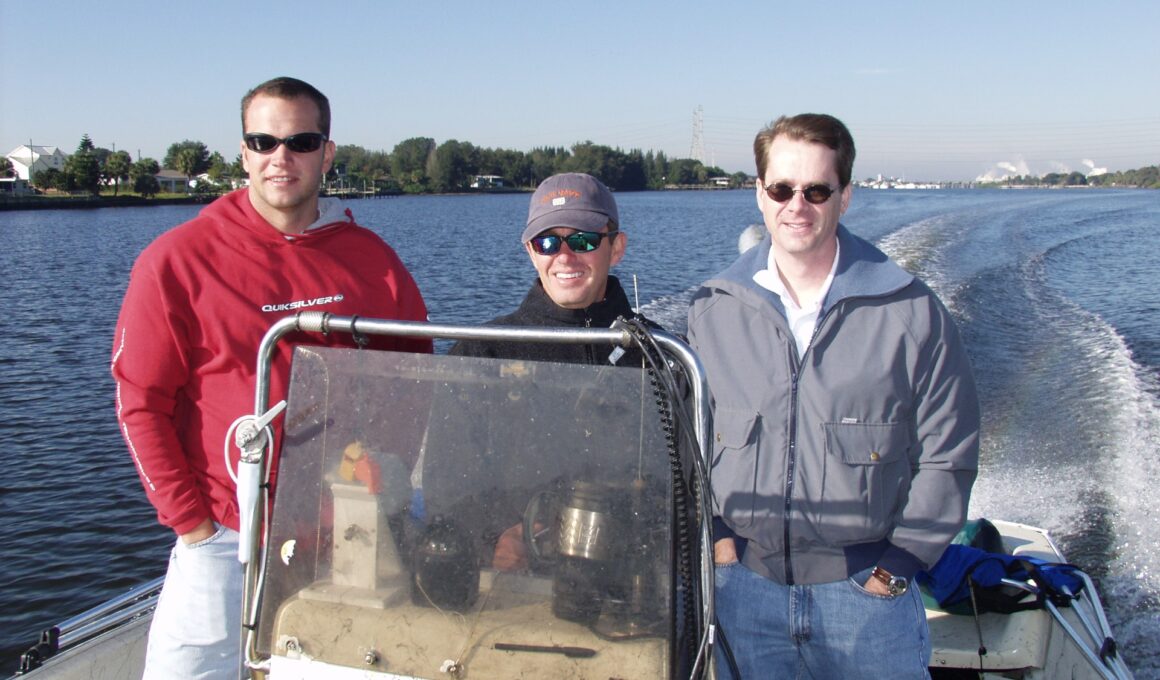By Shawn Jones
Bob McConnell’s Celebration of Life will take place:
February 24th, 2024, 12 to 3 p.m.
Philippe Park Shelter 8
2525 Philippe Parkway
Safety Harbor, Fl 34695
Bob McConnell’s 23-year career at Tampa Bay Water left an indelible mark on the Tampa Bay region. Bob passed on November 14, 2023 after a courageous battle with a rare form of cancer. Despite this battle, he maintained multiple efforts working with partners across the region to protect water resources in Tampa Bay, pushing for innovative programs that will benefit the region – and the state – for decades to come.
Bob joined Tampa Bay Water shortly after the region’s “water wars” were resolved between local governments and the Southwest Florida Water Management District. At the time, nearly two million people in the region relied upon the Floridan aquifer for their drinking water. As the region grew in population, demand for drinking water also increased. This, in combination with an ongoing drought, resulted in saltwater intrusion in coastal regions, then shrinking lakes and dried-up wetlands as the region turned to wellfields in Pasco and northwest Hillsborough counties to meet the growing demand for water.
Tampa Bay Water was created to reduce groundwater pumping and to expand water supply sources beyond the aquifer. The Alafia River, Tampa Bypass Canal and Tampa Bay were selected as alternative regional water supply sources. Bob led the creation of the Hydrobiological Monitoring Program (HBMP), which assessed how harvesting these source waters might impact the downstream environment, including water quality, habitat and wildlife.
The HBMP, which scientifically measures the potential effects of withdrawals on many environmental parameters, now serves as a model for responsible water use permitting across the country. After many years of showing no signs of adverse impacts from withdrawals in these sources, McConnell updated the monitoring program to focus on key environmental features of these water bodies to continue this essential collection of scientific data. As the HBMP turned 21 years old in 2023, he joked that “it was old enough to drink.”
Bob was exceptionally tenacious in protecting water resources. For example, he spent many years leading Tampa Bay Water’s effort to petition state regulators to further protect the Alafia River and Tampa Bypass Canals. As a result of his efforts, in partnership with others across the state, Florida created a “Class 1 Treated” designation that provides increased regulatory protection for the water bodies we depend upon. This work also benefited other water utilities in the state of Florida whose water supplies received this new classification. Bob continued the pursuit of additional protection for these water bodies for the rest of his career, even during his bout with cancer. His perseverance in the surface water reclassification process is something that will benefit all Floridians as water supplies become more limited in the future.
His favorite accomplishment, and arguably his most important work, involved creating Tampa Bay Water’s Source Water Assessment and Protection Program. Bob designed this program so Tampa Bay Water could play a more active role in monitoring and protecting regional supply watersheds and groundwater sources. This program combines the talents of staff and local environmental experts to pursue actionable steps that will protect water resources from contamination due to watershed development and industrial discharges. Bob also convinced environmental stakeholders, who were once concerned about Tampa Bay Water’s withdrawals, to collaborate and explore opportunities to improve these watersheds together.
The Tampa Bay Estuary Program is one of the environmental stakeholders that questioned the impact of the desalination plant when it was first proposed, but Bob’s long-term commitment to protecting environmental resources earned him accolades.
“Bob was an invaluable contributor to the Tampa Bay Nitrogen Management Consortium, and TBEP’s Technical Advisory Committee and Management Board,” said Ed Sherwood, TBEP executive director. “For close to three decades, he provided a calming, thoughtful perspective on some of our most challenging water resource management issues in the region. I was fortunate to have known Bob and work in collaboration with him on many projects throughout the course of my career. I always appreciated his level-headed counsel in making progress to further protect the bay and its watershed resources. He will be missed by the TBEP and the entire natural resource management community in the region.”
It goes without saying that his commitment to environmental sustainability and his scientific accomplishments will continue to benefit Tampa Bay Water and our region for many years to come. Bob was respected as a scientist, and loved as a colleague and as a friend, by all who worked so closely with him during his amazing career.
Shawn Jones is a water quality scientist that spent six years working with Bob on source water projects. It was a privilege to be his first but unfortunately his last hire under the Source Water Assessment Department he loved so dearly. Working under Bob’s management granted me opportunities to get involved in various projects that will positively impact the region’s water supplies for many years to come.
